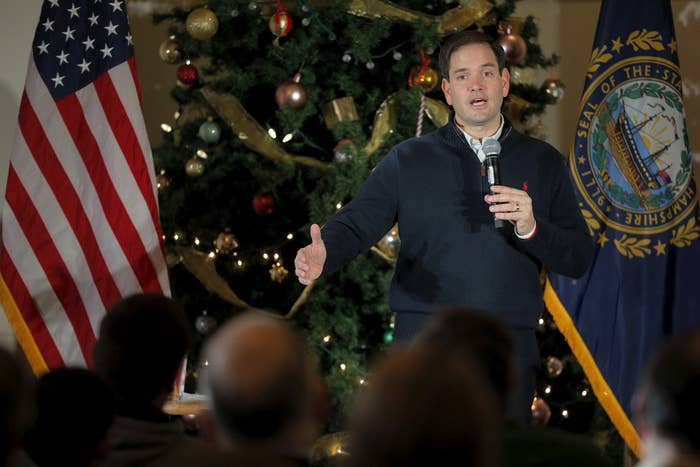
Marco Rubio said on Monday that the bipartisan immigration bill he helped craft in 2013 needed the House of Representatives to make it a "good bill."
The Florida senator, who was a member of the so-called "Gang of Eight" senators who drafted the bill, told Iowa radio host Simon Conway that he knew at the time the bill "was not what ultimately needed to become law."
"For 30 years, this country's been debating immigration and nothing is done on it. And so I figured, let's try to get something going in the Senate, the best possible, given the fact that Harry Reid controls the Senate. We'll then send it to the House, run by conservatives, and they're going to make it a good bill," Rubio said. "And then we'll present it to the president and say, if you want to act on immigration, here's the Republican offer. Take it or leave it."
Conway then asked Rubio if he felt like he was "conned," to which Rubio replied, "No, look, at the end of the day, I knew that what was being produced in the Senate was not what ultimately needed to become law. It most certainly was the best we could do under the circumstances we faced at the time because Harry Reid was the majority leader. And the hope was we could make it as strong as possible and then get the House to do something better."
Rubio made similar comments to Sean Hannity in November, saying, "I was trying to produce the most conservative bill possible in a Senate controlled by Democrats and had hoped a more conservative House would make it even better."
In the interview with Conway, Rubio said that, if he is elected president, immigration legislation will not have to go through that process, but will be done "the way I want to do it."
Rubio's role in promoting the 2013 immigration bill has been widely criticized by conservative Republicans, including his presidential opponent Ted Cruz, who has accused Rubio of supporting amnesty. Rubio added in the interview that, during his presidency, "there isn't going to be any amnesty."
"But when I'm president of the United States, we won't have to do any—we can do it the way I want to do it," he said. "And here's how we're going to do it: number one, there isn't going to be any amnesty. There's going to be real consequences for violating our law and people who are criminals are going to be deported."
Rubio also argued that the immigration debate has "dramatically shifted" since 2013.
"Today, the issue of immigration has dramatically shifted. It's no longer a debate about people coming here because they want to work. We now know that there are radical terrorist groups around the world that are trying to use both our legal immigration system and our illegal immigration problem to infiltrate terrorists into the United States," the Florida senator said.
